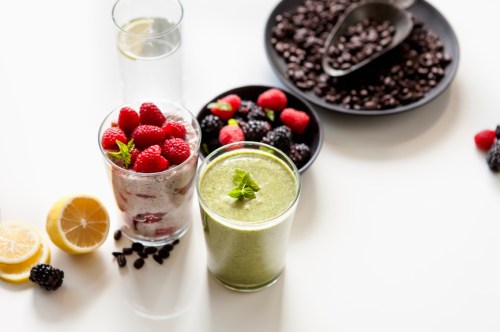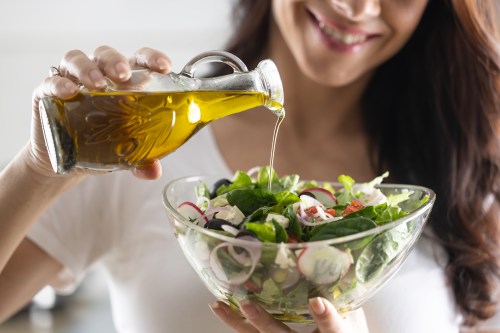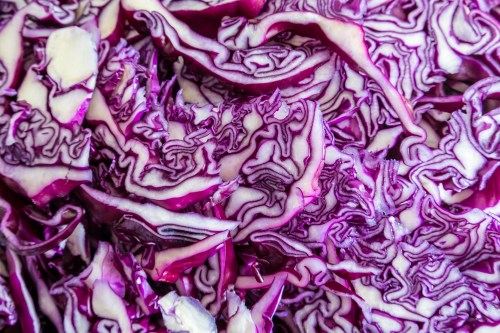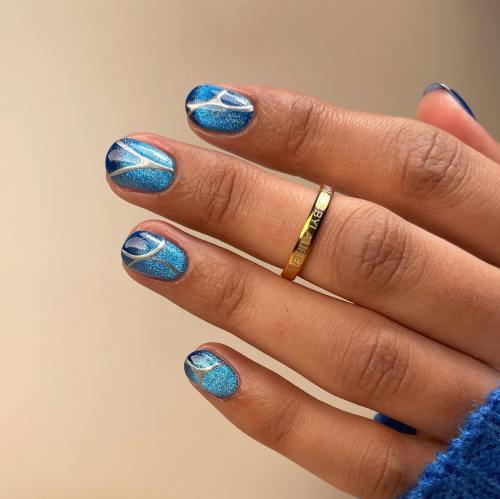Unfortunately, in today’s landscape, diet talk is nearly impossible to avoid. It’s everywhere: social media, TV, your aunt’s kitchen table. Despite our best efforts to firmly Unsubscribe, it can still feel like we’re being prodded at by new toxic-leaning diet trends (hi, “internal shower”), conversations that glorify extreme weight loss, or videos that insinuate a social expectation for how we eat, look, or perceive ourselves. But what we don’t always see blasted on our “For You” page is the deep psychological and physiological impact diet culture has on us all.
Experts in This Article
registered dietitian and founder of The Wellful
In the United States, nine percent of the population, or 28.8 million Americans, will have an eating disorder in their lifetime. The same study shows that there are about 10,200 deaths per year (or one death every 52 minutes) as a direct result of eating disorders.
To help shine light on the topic of evading the toxic—and pervasive, and constant—messaging we’re sent by diet culture, we spoke with Brenna O’Malley, RD, a non-diet registered dietitian of The Wellful, who shared some of the best self-affirmations to say to yourself when in the presence of diet talk.
6 positive self-affirmations to tell yourself when surrounded by diet talk
According to O’Malley, diet culture is omnipresent…meaning not just our social media apps. “Diet talk comes up everywhere—the hair salon, school, work, in movies, small talk—and it can be nearly impossible to remove yourself from it completely. Once you begin noticing the places where diet talk comes up, it can be overwhelming to navigate,” O’Malley says.
The key, she says, is understanding what to do in these situations. “Whether you’re actively working to change your own relationship with food or how you talk about food and bodies or just feel annoyed at the constant talk of dieting, having tools to get you through those conversations is a part of taking care of yourself,” O’Malley says.
One way O’Malley recommends doing so is by using positive self-affirmations. In a recent Instagram post, O’Malley delves into the importance of setting a two-part boundary regarding diet culture. For starters, she recommends external ones to help you set boundaries with a person engaging in diet talk (to help pivot the conversation, leave, or simply opt out). But when that’s not possible, O’Malley’s second approach becomes far more imperative. In the post, she speaks about the importance of establishing healthy internal boundaries and finding ways to coach yourself through experiences with diet talk. “These might be affirmations, self-care toolkits you keep ready, or tools to help you ground yourself,” O’Malley says.
Positive self-affirmations become can play a powerful role in how we see ourselves. “Using these also helps remind you of your autonomy and that you should make choices based on what feels good to you instead of diet culture or other food rules running the show. “Having tools or resources you can use in the moment under your belt means you’re better equipped to stop a body image spiral, disordered eating, and prevent yourself from getting swept into a diet you don’t want to be a part of,” O’Malley says.
- “This is about them, not about me.”
- “Someone else’s food rules don’t have to be my food rules.”
- “The way someone talks about food and bodies reflects their own relationship with food and their body. I don’t need to take this on as my own.”
- “I know my body best. When I’ve engaged in these behaviors in the past, I’ve felt (fill in the blank).” (Center your own experience on why those ways of eating or thinking about your body have not served you in the past.)
- “I can make my own choices about food.”
- “Talking about bodies and diets this way doesn’t feel good to me; I can opt out or walk away.”
Red flags that point to diet talk
Though some instances of diet talk can be blatantly obvious, others might be so nuanced or elusive that you might not notice them at first. However, O’Malley says there are a few red flags that can reinforce dieting language, culture, or even stereotypes to keep an eye on. In particular, she cautions against content that claims a “magic solution” for something or overpromises that any one thing that will change your life or your body completely.
“Having tools or resources you can use in the moment under your belt means you’re better equipped to stop a body image spiral, disordered eating, and prevent yourself from getting swept into a diet you don’t want to be a part of,” O’Malley says.
There are also a few keywords that can point to signs of diet language. “Morality or judgment attached to food choices or body appearance, whether that’s guilt or shame for eating certain foods, or labels like ‘good’ ‘bad’ ‘healthy’ ‘unhealthy’ ‘clean,’ etcetera,” O’Malley says. Additionally, she says that over-simplified messages that strip us of context, like social determinants of health, all-or-nothing messaging, or content that implies “you should eat or move like me to look like me.” All of the above may perpetuate themes of diet culture.
Of course, avoiding diet talk—though we might desire it—isn’t always possible. In addition to positive self-affirmations, O’Malley recommends carefully curating who you follow on social media, and asking yourself: What does it feel like when you follow and see creators in different body sizes and abilities that reflect the greater world we live in? She also reminds us that it’s important to acknowledge the pressure we often put on ourselves, and how this can trap us in toxic cycles of comparison.
In addition to positive self-affirmations, O’Malley recommends carefully curating who you follow on social media, and asking yourself: What does it feel like when you follow and see creators in different body sizes and abilities that reflect the greater world we live in?
Lastly, being kind to oneself is imperative. “Notice your self-talk. Are you speaking to yourself in a way that is much harsher than you’d speak to someone you love or care about? Oftentimes it is much easier to be critical of ourselves in a way we wouldn’t say out loud to someone else. If you notice that, check in, take a pause, and maybe ask yourself what you would say to a friend if the roles were reversed,” O’Malley says.
A dietitian shares ways to eat more sustainably:
Sign Up for Our Daily Newsletter
Get all the latest in wellness, trends, food, fitness, beauty, and more delivered right to your inbox.
Got it, you've been added to our email list.











